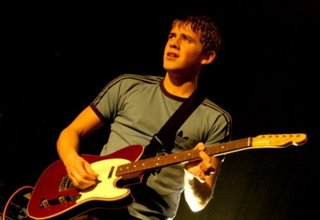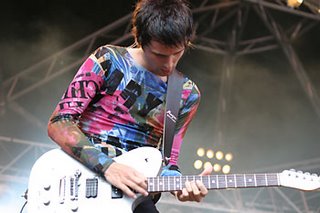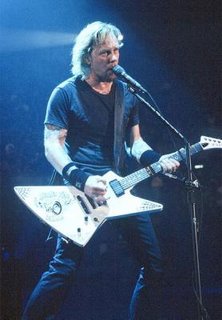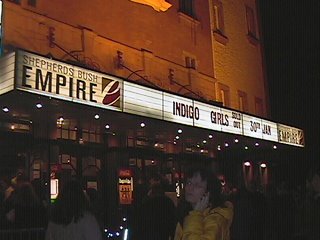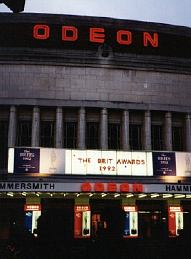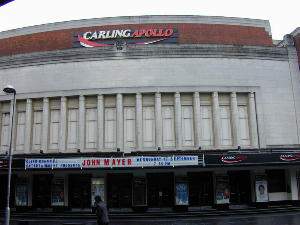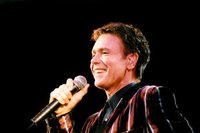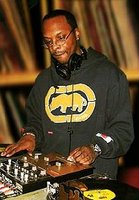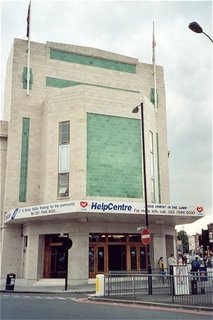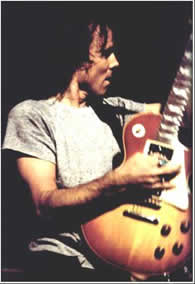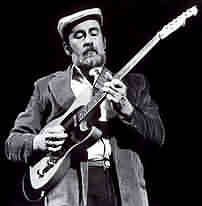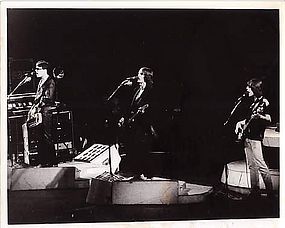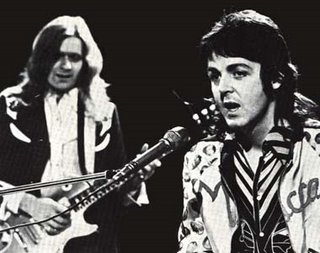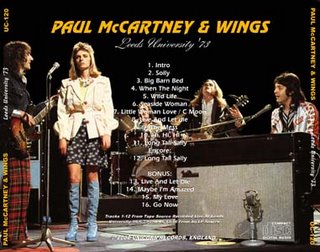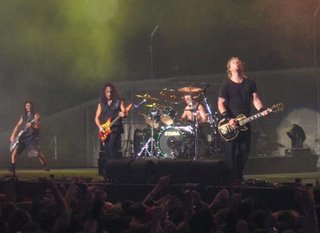
After almost three years of touring to support The Black Album, Metallica took a respite until late 1995. On December 13, they recorded during their rehearsal for Lemmy's 50th birthday party; four Motörhead covers were later released as a two-part limited edition CD single. The band spent around a year writing and recording new songs, resulting in Load (1996). At one point during early production, Load was intended to be a double album. Ultimately, it was decided that it would be best to release half of the songs first, and continue to work on the remaining songs and release them the following year. This resulted in the follow up album ReLoad (1997). Some songs written during Load were changed by the time they were recorded for ReLoad; in particular, "Fuel" had different lyrics than the version played during the Load Tour, as evidenced by the version played on the Cunning Stunts concert film (the song was then-titled "Fuel for Fire").
These albums represented a significant musical change for Metallica. The band's breakneck metal tempos and layered guitar compositions had largely been replaced by bluesy guitar tones, slide guitar and shuffle rhythms. Hetfield's vocals took a larger role than ever before, and several songs (such as "Mama Said" and "Low Man's Lyric"), and showed the band's willingness to experiment with varied sounds and instruments. These changes included the use of the steel guitar (commonly used in country music) in "Mama Said" (this is not supported by Kirk Hammett, who in a Guitar Player interview claimed it's not pedal steel guitar on "Load", but an electric guitar processed to emulate one), as well as the use of the hurdy-gurdy and violin in "Low Man's Lyric".
Many of the changes on Load and ReLoad had been anticipated by earlier experiments (especially on The Black Album), but listeners generally regard the two albums as the band's turning point. Sales were lower than sales of the previous three albums. Some fans began to sarcastically refer to the band as "Poptallica" or "Alternica" (or simply "Lica", as "the metal was gone") in light of the band's apparent conformity to more mainstream styles of pop or alternative metal music. Many songs from Load and ReLoad received extensive radio play, including "Until It Sleeps", "Hero of the Day", "King Nothing", "The Memory Remains", "The Unforgiven II", and "Fuel".
Hetfield noted later in the documentary film Some Kind of Monster that many songs on these two albums were initially thought by the band to be of only average quality, and polished and re-worked repeatedly until judged to be releasable.

By 1996, all of the band members had cut their hair (although Hammett eventually regrew most of his), which was ridiculed by many, including band friends Alice in Chains, whose edition of MTV's Unplugged featured, on Mike Inez's bass, the words "friends don't let friends get Friends haircuts." Metallica were in the audience for the taping of the show.
In 1998 Metallica compiled a double CD called Garage Inc.. The first CD contained newly recorded covers, ranging from obvious Metallica influences such as The Misfits, Thin Lizzy, Mercyful Fate and Black Sabbath to more unexpected choices like Nick Cave and Bob Seger (the band's cover of Seger's "Turn the Page" garnered extensive radio airplay). The second CD gathered together previously released covers, including the original The $5.98 E.P.: Garage Days Re-Revisited, which had become a scarce collectors' item. The CD also included B-side covers going as far back as 1984.
On March 7, 1999, Metallica were inducted into the San Francisco Walk of Fame. The mayor of San Francisco, Willie Brown, proclaimed the day "Official Metallica Day" in San Francisco. A month later, on April 21-22, 1999, Metallica recorded two performances with the San Francisco Symphony Orchestra, then conducted by Michael Kamen. Kamen, who had previously worked with Bob Rock on "Nothing Else Matters", approached the band with the idea of pairing Metallica's music with a symphony orchestra. Kamen and his staff composed additional orchestral material for a number of Metallica songs and the concerts featured broad selection of songs dating as far back as Ride the Lightning. Metallica also wrote two brand-new Kamen-scored songs for the event, "No Leaf Clover" and "−Human." The audio recording and concert footage were released later that year as the album/concert film S&M, in November 1999, on CD, VHS, Video CDVCD, and DVD.
In 2000, Metallica discovered that a demo of their song "I Disappear" was being distributed via the Napster P2P file-sharing network. Not only was the song unfinished, it was supposed to be released in combination with the Mission: Impossible II soundtrack.

They soon discovered that in addition to the demo, their entire catalogue was also freely available. The band initiated legal action against Napster and, in the process, demanded that 300,000 Napster users found to be trading Metallica songs be banned from the network. Legal actions were also started against Yale University, University of Southern California, and Indiana University for not blocking Napster from their campuses. In 2001, Metallica and Napster agreed to an out-of-court settlement which led to many Napster user accounts being locked out. The band did not take legal action against any individuals for copyright infringement. Lars Ulrich provided a statement to the Senate Judiciary Committee regarding copyright infringement on July 11, 2000.
The lawsuit created a public relations nightmare. Throughout the controversy, many websites hosted cartoon parodies of band members, portraying them as selfish rock stars who were out of touch with their fans. The most popular of these was a cartoon parody entitled Napster Bad!, by Camp Chaos, which spawned an entire series. Some critics mocked Ulrich by spelling his name as "Lar$". In retaliation to the controversy, Ulrich appeared during the 2000 MTV Video Music Awards, in a skit with that years host Marlon Wayans, that blasted against fans' idea of using Napster to share music. Marlon was featured as a college student listening to Metallica's "I Disappear" (ironically to the idea that the demo version was being downloaded on Napster, and to the fact that it was Metallica's current big playing single on radio and MTV), and Lars walking in and from receiving Wayans' sharing excuse, interpreted the idea of sharing by being able to borrow anything that was yours without asking, can also be coined to the point of anything and Metallica roadcrew entered into the dorm room and conviscated everything, while slapping a Napster sticker onto everything, leaving Wayans with an empty room, and even clothless. Napster creator Shawn Fanning would respond by presenting an award wearing a Metallica shirt, saying "I borrowed this shirt from a friend. Maybe, if I like it, I'll buy one of my own," to mock the controversy Ulrich and co. had ensued upon. Public ridicule was widespread as many longtime fans felt Metallica had got their start via underground trading of bootleg recordings of their performances[citation needed]. Metallica's defense was that Napster was allowing free access to their back catalogue and not live bootleg recordings which the band had always encouraged. The fan backlash would not be the only setback the band would experience that year.
Metallica, like a number of other bands, refused to sell their music on iTunes for a number of years. They finally ended this holdout on Tuesday, July 25, 2006, although only in the US and Canada.
As plans were being made to go into the recording studio in 2001, Jason Newsted left the band, ostensibly due to "the physical damage I have done to myself over the years while playing the music that I love." However, subsequent interviews with Newsted and the remaining members revealed that Newsted's desire to release a CD and tour with his Echobrain side-project – and Hetfield's intense resistance to such an idea – was the primary cause of Newsted's departure, as Hetfield believed a release by an individual band member would somehow weaken the band. The 2004 documentary Some Kind of Monster provided more insight into the reasons for Newsted's departure. In the film he says he felt Metallica's desire to hire a therapist to help solve the problems between the band members was "fucking lame and weak".
This would be the first in a series of low-points the band would endure. In July, 2001, Hetfield entered rehab due to "alcoholism and other addictions". For nearly a year, Metallica ceased to function in any meaningful way. Ulrich and Hammett, for the first time, seriously considered the possibility that Metallica might be finished. Hetfield eventually returned to the band following his rehab hiatus. Slowly and cautiously Metallica continued as a 3-piece throughout the writing and recording of their next album. Longtime producer Bob Rock handled bass duties for the sessions.
Metallica held auditions for Newsted's permanent replacement in early 2003. Robert Trujillo formerly of Suicidal Tendencies, and Ozzy Osbourne's band, was chosen as the new bassist. Robert's resume also included Infectious Grooves as well as a stint with Black Label Society on their Boozed, Broozed, and Broken-Boned DVD. As Metallica moved on, Jason Newsted also found a new musical home joining Canadian thrash metal legends Voivod in 2002. In an interesting turn of events, Jason became Robert's replacement in Ozzy's band during the 2003 Ozzfest tour (which included Voivod as part of the touring bill).
In June 2003, Metallica released their eighth full-length studio album, St. Anger. The album debuted at number one on the album charts, as an intentionally raw and unpolished album as a response to critics' complaints that they had lost their edge. Harsh criticism from fans followed, however, for the record's under-produced sound (notably Hetfield's "flexible" sense of pitch), Ulrich's new signature steel snare drum, overwrought songs, and no guitar solos whatsoever (a rarity for Metallica). Reports of second-hand CD shops being flooded with copies of the album circulated on the Internet. Despite the criticism, Metallica won a Grammy in 2004 for St. Anger, the band's seventh such award. The documentary Some Kind of Monster followed the album and offered an inside view into the daily affairs of Metallica as never before. While the film focused on the growing tensions within the band, it fulfilled its original purpose of helping to promote the album. The film also exposed to fans that Metallica had sought the guidance of a therapist, Phil Towle, to deal with a vast amount of the band's inner turmoil.
Having toured extensively for two years with Godsmack in support of St. Anger on the Madly In Anger With The World Tour (in which nearly every performance was professionally recorded and sold on LiveMetallica.com) Metallica took a break from performing and spent most of 2005 amongst their friends and families.

On February 16, 2006, Metallica announced on their official website, that after their 15+ year relationship, longtime producer Bob Rock has stepped down from recording Metallica's next studio album. Rock had produced every Metallica album since 1991, beginning with Metallica. His place will be taken by legendary producer Rick Rubin , who has collaborated with artists such as Beastie Boys, Red Hot Chili Peppers, Weezer, Audioslave, Slipknot, System of a Down, Johnny Cash, LL Cool J, Jay-Z and Slayer. They are currently working on a brand-new, full-length studio album which will be released sometime in the near future - Metallica has not specified an exact release date yet.
Metallica debuted an untitled song nicknamed "The New Song" in Berlin, Germany on June 6th, 2006 on the European leg of the Escape from the Studio '06 mini tour. On August 12th, 2006, Metallica debuted another song in Tokyo, Japan on the Asian leg of the tour, nicknamed "The Other New Song". The band has previously unveiled new songs prior to their release: Four songs from Ride the Lightning ("Fight Fire with Fire", "Ride The Lightning", "Creeping Death", and "The Call of Ktulu") were performed before the release of the album; Master of Puppets' "Disposable Heroes" was debuted in September of 1985; ...And Justice for All's "Harvester of Sorrow" received its live debut in 1987, Load's "2x4" was played during the Escape from the Studio '95 mini-tour; and Reload's "Fuel", "Devil's Dance" and "Bad Seed" were played at various points during the Load tour 1996-97 and again on the Escape from the Studio mini-tour in August 1997 ("The Memory Remains" was teased at the same shows).
It was during this time on tour that the band finally bowing to fan pressure decided to make their entire back catalogue ( Kill 'Em All - Some Kind Of Monster EP) available for download through the iTunes Music Store. They had offered their albums for sale from various sources online for some time, but this offered people the chance to download individual tracks from their history. Their first 4 albums were generally shorter in length than their later ones so they added exclusive tracks from the Seattle '89 shows to each one, thus encouraging old fans to download these new digital versions. At this time the band's back catalogue is only available through iTunes in the US and Canada, due to record companies in the rest of the world not agreeing to the service.
Metallica - Live in Nashville, TN 11-11-04 CD1
http://www.megaupload.com/?d=Y71JZ6FPMetallica - Live in Helsinki '88
http://www.megaupload.com/?d=XJZP4E22Metallica - LIVE in Broadway Jacks 15-12-1983
Note: some Metallica boolegopedia give different location fro this date
http://www.megaupload.com/?d=A61ZGQKQMetallica - June 18, 1993 - Rayo Vallecano - Madrid,
http://www.megaupload.com/?d=AXCG5LA7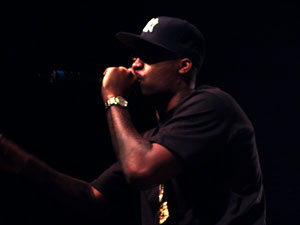 Nasir bin Olu Dara Jones (born September 14, 1973), known commonly as Nas and styled on albums as NaS, is a prominent American rapper. Raised in the infamous Queensbridge housing projects in New York City and the son of a jazz trumpeter, Nas is best known for his 1994 debut album Illmatic, widely considered one of the best hip-hop albums of all time. This album established Nas as one of hip-hop's most profound lyricists, introducing his signature poetic style.In the years following the release of Illmatic, Nas pursued a more commercial direction, which resulted in wider success but decreased artistic credibility among critics and hip-hop purists. One such instance was his appearance on PBS' Sesame Street. Furthermore, Nas' increased commercial success was accompanied by stylistic changes that fostered accusations of giving in to corporate wishes that compromised the style his fans enamored. Nevertheless, the LP Stillmatic is often credited for restoring Nas' credibility among fans. Since the success of Stillmatic, Nas continues to maintain a high profile within the hip hop community, and has pursued a decidedly personal aesthetic. While Nas' current artistic direction differs greatly from his most successful work, it has ensured that he remains one of the most respected and acclaimed contemporary rappers.
Nasir bin Olu Dara Jones (born September 14, 1973), known commonly as Nas and styled on albums as NaS, is a prominent American rapper. Raised in the infamous Queensbridge housing projects in New York City and the son of a jazz trumpeter, Nas is best known for his 1994 debut album Illmatic, widely considered one of the best hip-hop albums of all time. This album established Nas as one of hip-hop's most profound lyricists, introducing his signature poetic style.In the years following the release of Illmatic, Nas pursued a more commercial direction, which resulted in wider success but decreased artistic credibility among critics and hip-hop purists. One such instance was his appearance on PBS' Sesame Street. Furthermore, Nas' increased commercial success was accompanied by stylistic changes that fostered accusations of giving in to corporate wishes that compromised the style his fans enamored. Nevertheless, the LP Stillmatic is often credited for restoring Nas' credibility among fans. Since the success of Stillmatic, Nas continues to maintain a high profile within the hip hop community, and has pursued a decidedly personal aesthetic. While Nas' current artistic direction differs greatly from his most successful work, it has ensured that he remains one of the most respected and acclaimed contemporary rappers.



